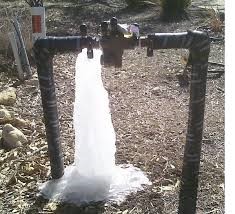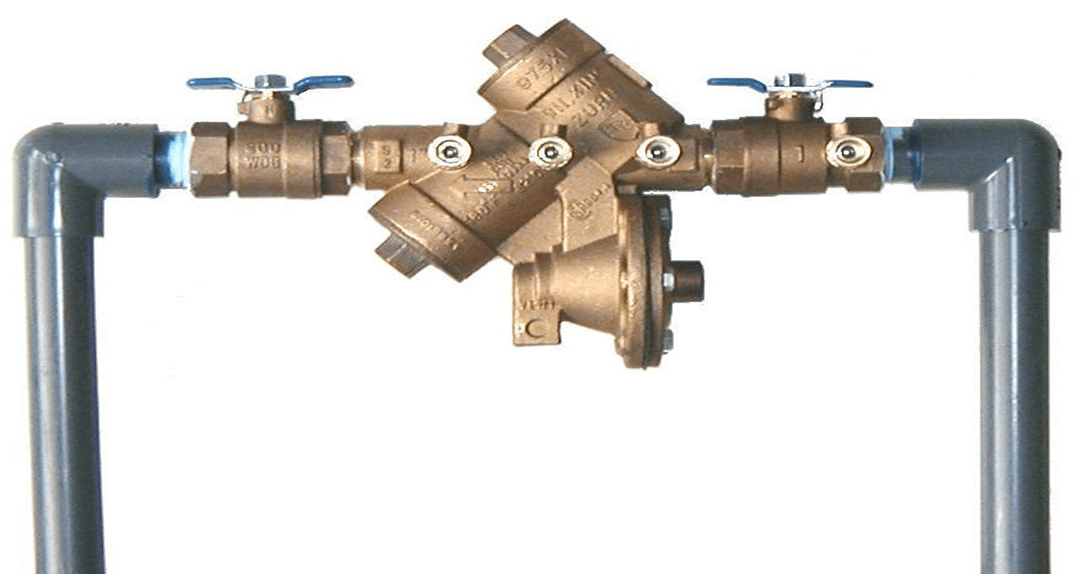Why do we winterize?

We want to take care of our irrigation systems. Often times there are breaks in our systems after a long hard winter. Everyone knows that water expands when it freezes – we need to take this into consideration when we are preparing for the cold months.
Make sure your system is ready for the winter before temperatures drop below 32 degrees, especially for multiple hours at a time.
Why do we winterize differently in Central Texas?
Folks around the country will often shut off and drain their irrigation systems entirely before the winter, but that’s not really necessary in Central Texas.
The majority of winter irrigation issues around here arise from underuse instead of freezing issues.
Why shouldn’t you turn off your system entirely? Turns out there are a couple of reasons to make sure you run your system consistently throughout the cold season.
- Your turf still needs water – just a lot less than the summer. Proper watering throughout the winter season will keep your soil loose and your turf better fortified from the damage of the cold.
- Irrigation – like most mechanical things – needs to be used periodically so that it doesn’t break. Like an old car, when you don’t use it, you lose it. Old fittings dry out and break. Pipes dry out. Etc.
When we think about winter damage to our irrigation we usually think about pipe breaks, but with the vast majority of systems under ground we don’t get many pipe issues. The ground in Central Texas almost never gets cold enough to threaten buried pipes.
There is a notable exception: backflow preventers. Certain backflow preventers are above ground (often out by the street or by the house). These are pipes and are at high risk of breaking in a hard freeze (we replace several a year). Unfortunately, these are also expensive due to the heavy amounts of metal used in their construction.
If you don’t know, backflow preventors are very important for the health of our water system. They prevent nasty stuff from going back through our system into the public drinking water. Just wrapping the thing in insulation tape will actually prevent the system from working properly. We recommend insulation bags. They are not perfect and will not prevent every issue, but they are almost always enough to protect your system from a light freeze. If freezing temps persist for multiple hours, we recommend fully winterizing/draining your backflow preventer.
Does your irrigation system have a freeze detector?
Austin code requires rain detectors. Freeze detectors are not required, but still highly recommended.
Most automated systems will automatically shut off at 37 degrees. This won’t protect your system from freeze damage, but it will stop your system from running and creating slipping hazards on sidewalks and drives. This will also help protect your plants.
If you don’t have a freeze detector (or if you’re not sure) get in touch with our certified irrigation pros!
How to winterize your irrigation system in Austin
Here are a few basic steps you can take to winterize your irrigation system.
- Protect your backflow preventer
Like we said earlier, these are often the only part of the system that is above ground, and they are expensive! Utilize basic insulation to protect against a brief freeze, and consider fully winterizing/draining your backflow preventer once freezing temperatures persist for multiple hours.

- Adjust your controller for winter use
Next, let’s talk about operating the system. How should the timer be set? Short answer: it depends. Longer answer: most zones should still run, just at a significantly decreased rate and less often than at other times in the spring. Some zones can be turned off, but this is rare. It is safe to just assume a very short run time.
- Inspect for high-risk exposed areas
Finally, to winterize your irrigation system, you should inspect the home for other areas of high risk. Each home has its own unique challenges. Perhaps you have an exposed faucet (not irrigation but still good to protect). Perhaps you have an exposed pipe where there is erosion. Do a quick run through and make sure that you don’t have any small problems that will turn into big problems.
- Leak detection and repair
You want to go into the winter confident your system doesn’t have any leaks or breaks. Did you know that Austin Water averages your winter water usage during to calculate your wastewater fees for the rest of the year? Undetected leaks can actually raise your monthly utility bills in 2024.
Schedule your winterization service
As always, let us know if you have any questions about protecting your irrigation system from freeze damage!
If you’d like to have our certified pros handle it, we’d love to help you out! Our typical winterization service costs just $120.99 for the first hour. Additional fees may apply to any extra parts and labor (for leaks and issues) or if you have an unusually complex system with lots of zones.
Call (512) 291-7050 or request a free quote to get your winterization service scheduled.


